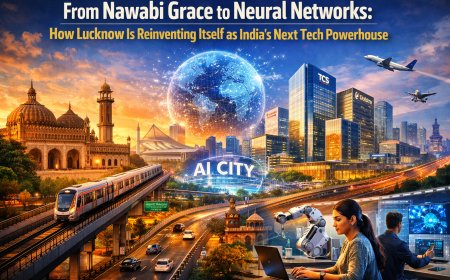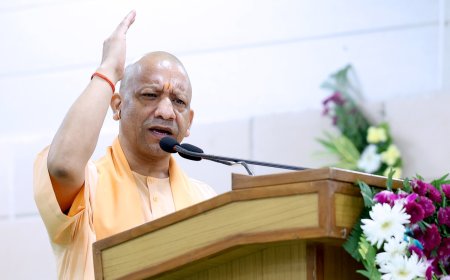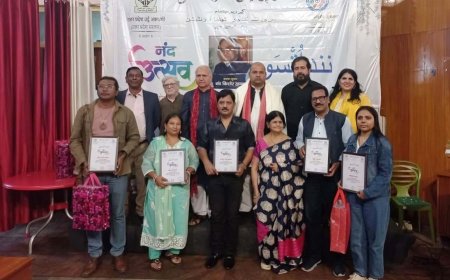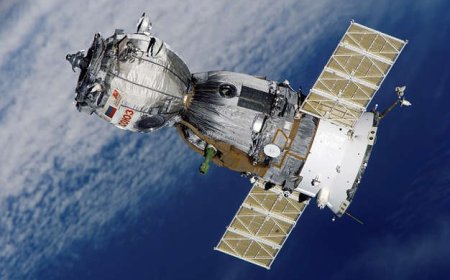India drives on the Digital Highway
India has been a hub for technological innovation, especially in recent years. Some of the most important technology innovations from India
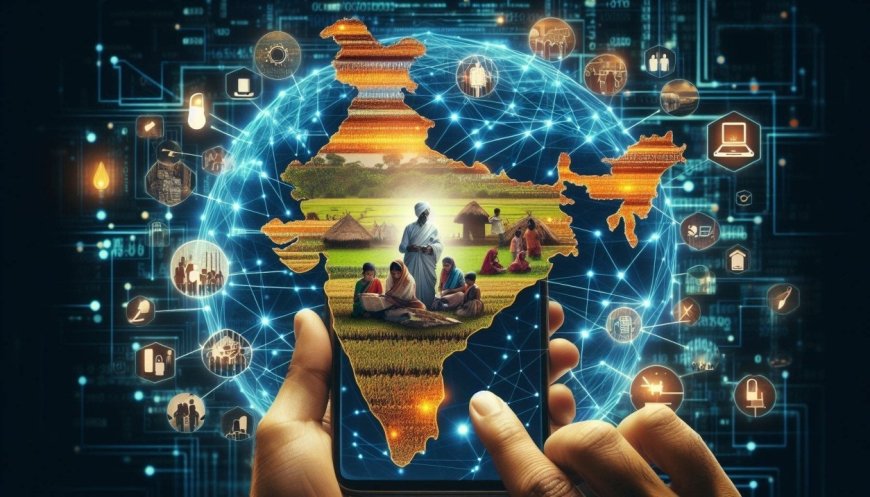
Lucknow/ New Delhi: India has been a hub for technological innovation, especially in recent years. Some of the most important technology innovations from India include:
Aadhaar System: The Aadhaar system is the world's largest biometric ID system. Managed by the Unique Identification Authority of India (UIDAI), it assigns a unique 12-digit identification number to residents of India, based on their biometric and demographic data. This has revolutionized access to services and subsidies, promoting financial inclusion and reducing fraud.
UPI (Unified Payments Interface): Launched by the National Payments Corporation of India (NPCI), UPI is a real-time payment system that enables instant money transfers between bank accounts through mobile devices. It has dramatically simplified and accelerated digital payments, transforming the financial landscape in India.
Jio Revolution: Reliance Jio's entry into the telecom market in 2016 revolutionized the industry by offering affordable 4G internet access. This significantly increased internet penetration, transforming how Indians access and use digital services.
Chandrayaan and Mangalyaan Missions: The Indian Space Research Organisation (ISRO) has achieved significant milestones with its Chandrayaan missions (moon exploration) and Mangalyaan (Mars Orbiter Mission). These missions have placed India among the elite group of space-faring nations and showcased its capabilities in cost-effective space exploration.
Telemedicine and Health Tech Innovations: India has seen a surge in telemedicine platforms like Practo, mFine, and 1mg, which provide remote consultations and healthcare services. This has been particularly crucial in providing access to medical services in rural and remote areas.
Agri-tech Solutions: Innovations in the agricultural sector, such as AI-based solutions for crop monitoring, predictive analytics for weather forecasting, and blockchain for supply chain transparency, have started to transform traditional farming practices. Companies like AgroStar, Ninjacart, and CropIn are leading in this space.
EdTech Platforms: Education technology platforms like BYJU's, Unacademy, and Vedantu have revolutionized the way education is delivered in India, providing accessible and personalized learning experiences. These platforms have seen massive growth, particularly during the COVID-19 pandemic.
Renewable Energy Technologies: India has made significant strides in renewable energy, particularly in solar and wind power. Innovations in solar panel technology, energy storage solutions, and grid management have contributed to India's ambitious renewable energy targets.
Government Initiatives:
Digital India: Launched in 2015, this initiative aims to transform India into a digitally empowered society and knowledge economy. It focuses on providing digital infrastructure, digital services, and digital literacy.
Startup India: Introduced in 2016 to promote entrepreneurship, this initiative offers tax benefits, easier compliance, and a fund of funds to support startups.
Make in India: Encourages companies to manufacture in India and incentivizes investment in manufacturing, which includes electronics and technology products.
India remains a global leader in IT services and business process management (BPM). Companies like TCS, Infosys, Wipro, and HCL have continued to expand their global footprint. The sector has been pivotal in driving digital transformation for businesses worldwide.
Fintech:
India has witnessed a fintech revolution with companies like Paytm, PhonePe, Razorpay, and PolicyBazaar leading the charge. Unified Payments Interface (UPI) has become a global benchmark for digital payments. Innovations in banking, insurance, lending, and wealth management have increased financial inclusion.
E-commerce giants like Flipkart and Amazon India have transformed the retail landscape. The pandemic further accelerated online shopping trends.
D2C (Direct-to-Consumer) brands and social commerce are gaining traction.
Innovation Hubs: Cities like Bangalore, Hyderabad, and Pune are becoming global tech innovation hubs, attracting talent and investment. Overall, India's tech landscape is vibrant and evolving rapidly, with immense potential to drive economic growth and societal progress.
The Uttar Pradesh perspective
E-Governance and Digital Services:
e-District Project: This initiative aims to deliver government services electronically to citizens, improving transparency and efficiency. Services include issuing certificates (birth, death, domicile), licenses, and social welfare schemes.
Jansunwai Portal: A grievance redressal system that allows citizens to lodge complaints online, track their status, and receive timely resolutions.
Education:
Digital Classrooms: Many schools in U.P. have adopted digital classrooms equipped with interactive whiteboards and multimedia content, enhancing the learning experience.
e-Pathshala: An online platform providing digital textbooks, e-books, and other educational resources for students and teachers.
Healthcare:
Telemedicine: The state has implemented telemedicine services to provide remote medical consultations, particularly beneficial in rural areas with limited access to healthcare facilities.
e-Hospital System: This integrates various hospital services like patient registration, appointment scheduling, and electronic medical records, improving hospital management and patient care.
Agriculture:
Kisan Suvidha App: This mobile app provides farmers with information on weather, market prices, crop advisory, and dealer contacts, helping them make informed decisions.
Soil Health Cards: Issued to farmers to provide detailed information on soil quality and recommended fertilizers, aiming to improve crop yields and soil management.
Energy:
Solar Power Initiatives: The state government is promoting the use of solar power by installing solar panels in public buildings, streetlights, and promoting solar pumps for irrigation.
Smart Metering: Implementation of smart meters to ensure accurate billing, reduce power theft, and improve energy management.
Transport:
Integrated Traffic Management System (ITMS): This system uses surveillance cameras and automated signals to manage traffic flow, reduce congestion, and enhance road safety in major cities.
UP State Road Transport Corporation (UPSRTC) Online Services: Provides online ticket booking, real-time bus tracking, and other services to improve public transport efficiency.
Public Safety and Law Enforcement:
UP Dial 100: An emergency response service using GPS-enabled vehicles and a centralized call center to provide quick assistance to citizens in distress.
Crime and Criminal Tracking Network & Systems (CCTNS): A comprehensive database of criminals and crimes that helps law enforcement agencies track and solve cases more efficiently.
Financial Inclusion:
Direct Benefit Transfer (DBT): Ensures that subsidies and welfare benefits are directly transferred to the bank accounts of beneficiaries, reducing leakage and ensuring transparency.
What's Your Reaction?








